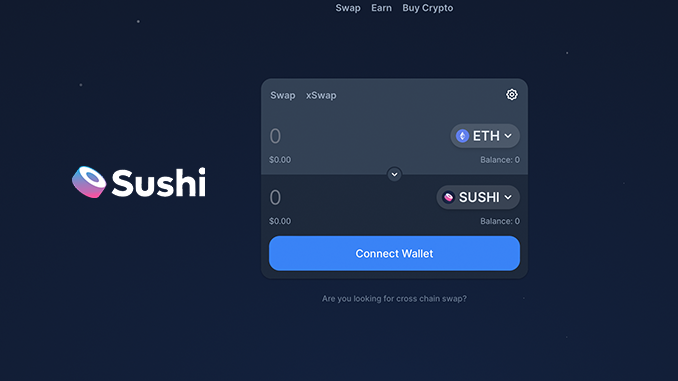
Discussions are underway at SushiSwap (SUSHI) on how to secure funding in the medium and long term. But a proposed change in fee distribution is causing investors to react nervously.
When decentralized crypto exchange SushiSwap went live with its own token SUSHI in 2021, the crypto scene was intrigued. The innovative concept of making a DeFi project more attractive by offering its own token led to huge shifts at times. UniSwap, the market leader at the time, suddenly felt compelled to follow up with UNI as its own token to stop the massive outflow of capital to SushiSwap. Slowly but steadily, SushiSwap has recently lost ground to other decentralized crypto exchanges, and chief executive Jared Grey sees the financial situation as critical.
In a proposal to SUSHI investors, Grey writes that financial reserves will only be sufficient for about a year and a half to pay annual costs of about $5 million for SushiSwap’s team and infrastructure. To be on the safe side in the medium and long term, Grey therefore proposes to restructure the distribution of revenues. Until now, 0.25 percent of the 0.30 percent fees at SushiSwap went to the project’s account and 0.05 percent was distributed to SUSHI investors. Now, Grey wants to have it written down for an initial one-year period that all fee income will go entirely into SushiSwap’s reserves. This would invalidate SushiSwap’s original concept of delivering bonuses to investors in combination with SUSHI.
Therefore, it comes as little surprise that investors in SUSHI are now taking action. Blockchain data shows SUSHI being noticeably withdrawn from staking, presumably to be able to sell it. SUSHI’s price curve has turned sharply negative by about 18 percent since Grey’s proposal was published, suggesting initial sell-offs.
Thus, SushiSwap and SUSHI face the threat of a situation in which a majority is in favor of Grey’s financing plan – but capital and investors still shift to competitors. Grey still sees no alternative to his proposal, and some commentators interpret his actions as extortionate.
Conclusion: beginning of the end for SushiSwap?
The still-short history of decentralized finance (DeFi) has taught that investors are quick to switch points of contact with their capital if more return beckons elsewhere. SushiSwap and SUSHI could now fall into this trap if the bonuses for regular customers and stakers anchored in the concept are eliminated. But at least Grey holds out the prospect that new incentives could be created in mid-2023 to make SUSHI Staking attractive again. However, half a year is already a long time for the DeFi segment of the crypto industry.

Leave a Reply